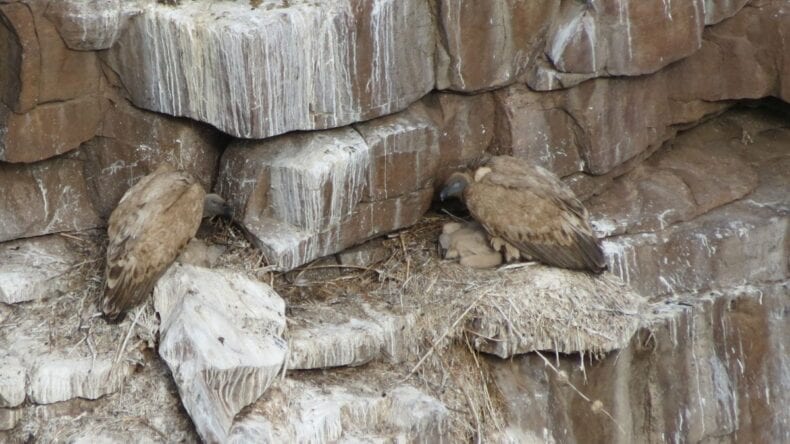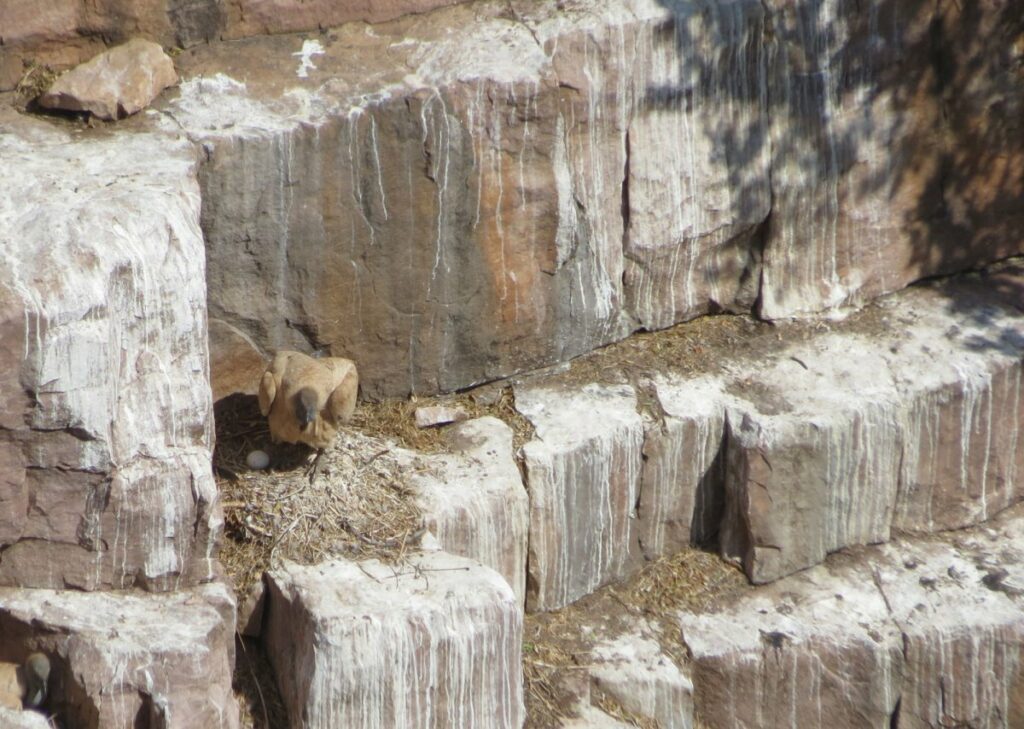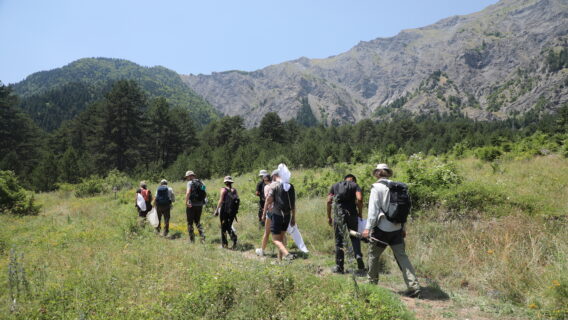IUCN Save Our Species Announces First Rapid Action Grant under SOS African Wildlife initiative

Despite their critical ecosystem role as nature’s clean-up crew and their tourism value, vulture species worldwide face numerous threats, including human disturbance, loss of foraging habitat and hunting for use of body parts in the traditional health industry.

Unsafe food supplies is also an important issue, with birds dying due to their inability to metabolise traces of veterinary drugs like Diclofenac found in the tissues of dead livestock. They may also die from poisoning – accidental in the case where farmers are targeting carnivores such as lions or hyaenas or sometimes deliberate poisoning where vultures are targeted by poachers; as carrion feeders, vultures are naturally attracted to a dead animal and will circle high above a carcass, thereby inadvertently alerting authorities and rangers to a possible poaching incident. The recent death of 500 vultures in Botswana due to a poisoned elephant carcass left by poachers is just the latest in this worrying trend.
Yet in Tswapong Hills, it is something all parents can relate to: a lack of calcium in their diets is killing young Cape Vultures.
In 2017, Kalahari Research and Conservation started monitoring two breeding Cape Vulture colonies in the Tswapong Hills of Botswana after they had not been monitored for 18 years. They found that fledgling nesting success had dramatically reduced over a 20-year period: from 64.3% to 43.5%. According to The IUCN Red List of Threatened Species™, populations of Cape Vultures are decreasing making these discoveries all the more troublesome for conservation.
In December 2017, the team discovered three chicks with deformed wings at the bottom of the Moremi Gorge. Some 12 months later, they made another disturbing discovery: 12 dead chicks, all with deformed wings and feet. Because they were unable to fly, they had starved to death, the scientists surmised.
Research confirmed that the chicks were suffering from a bone deficiency (osteodystrophy) due to a lack of calcium in their diet. Cape Vultures tend to nest in “shady” cliff edges, which makes this species particularly susceptible due to reduced sunlight exposure and therefore a lack of vitamin D, which helps absorb calcium. Furthermore, a decline in large carnivores in the area means that there are fewer bone fragments available to the vultures.
In 2018, Kalahari Research and Conservation started a pilot project in collaboration with the local community to introduce bone fragments to the remote breeding locations of the Cape Vultures. By strategically placing bone fragments in and near bait sites, adult vultures increase their intake of calcium, which is then passed on to their chicks. This approach has worked, but so far only on a relatively small scale.
Vulture Ecologist and Director of Kalahari Research and Conservation, Dr Glyn Maude explains,
Our research has shown that this is a much larger issue than originally anticipated in 2018. We need to scale up our efforts and implement vital conservation action urgently to stabilise the two breeding Cape Vulture colonies and secure a future for this Endangered species. The SOS African Wildlife Rapid Action Grant will enable us to do this.
Dr Glyn Maude, Director of Kalahari Research and Conservation
The Rapid Action Grant will allow Kalahari Research and Conservation to expand their project, increasing the amount of bone fragment available and the frequency with which it is placed. A minimum of eight kilos of broken up bones will be distributed every three weeks. Camera traps will be used to confirm that the adult vultures are ingesting the bone fragments, and the project will continue to monitor nesting success rates to ensure that the project is having the desired impact.
In conjunction with their direct work with the species, Kalahari Research and Conservation will also organise Vulture Awareness events in the local communities to increase the appreciation for this important species. It is hoped that securing the two breeding vulture populations will also help improve the tourism value for the Moremi Gorge.
With this emergency funding Kalahari Research and Conservation will be able to respond to an immediate threat to an Endangered species and stabilise these breeding colonies, while working with key local stakeholders to devise a long-term action plan to protect the Cape Vultures in the area.
The SOS African Wildlife initiative is a five-year initiative launched in 2017 with funding from the European Commission’s Directorate General for International Cooperation and Development (DG Devco) through the B4Life initiative. The initiative aims to halt the decline of threatened carnivores and prey species in Africa by offering different types of grants.
Kalahari Research and Conservation is the first recipient of a Rapid Action Grant under the SOS African Wildlife initiative. Rapid Action Grants are available on an ongoing basis for those looking to implement actions urgently in response to a conservation emergency.




